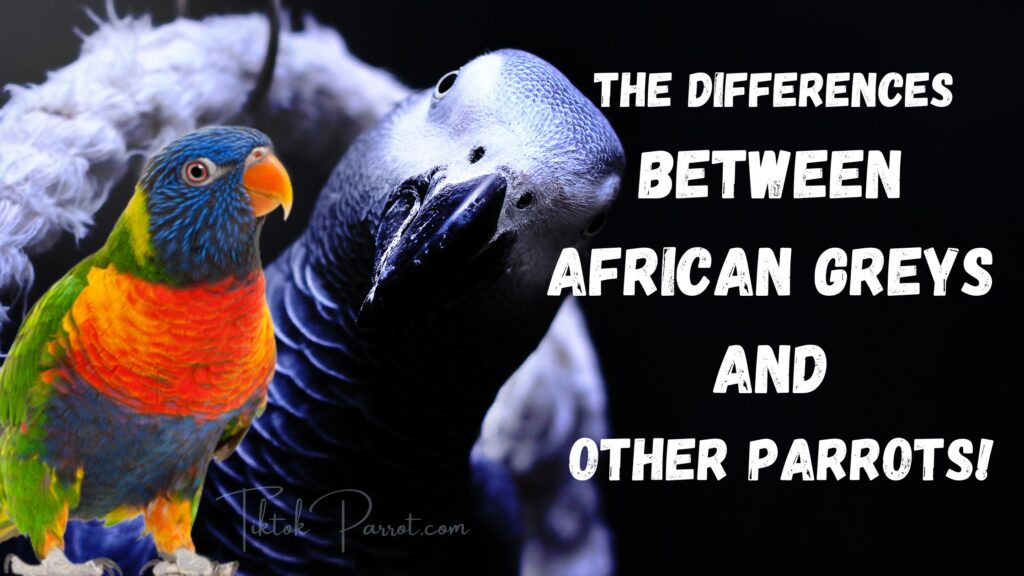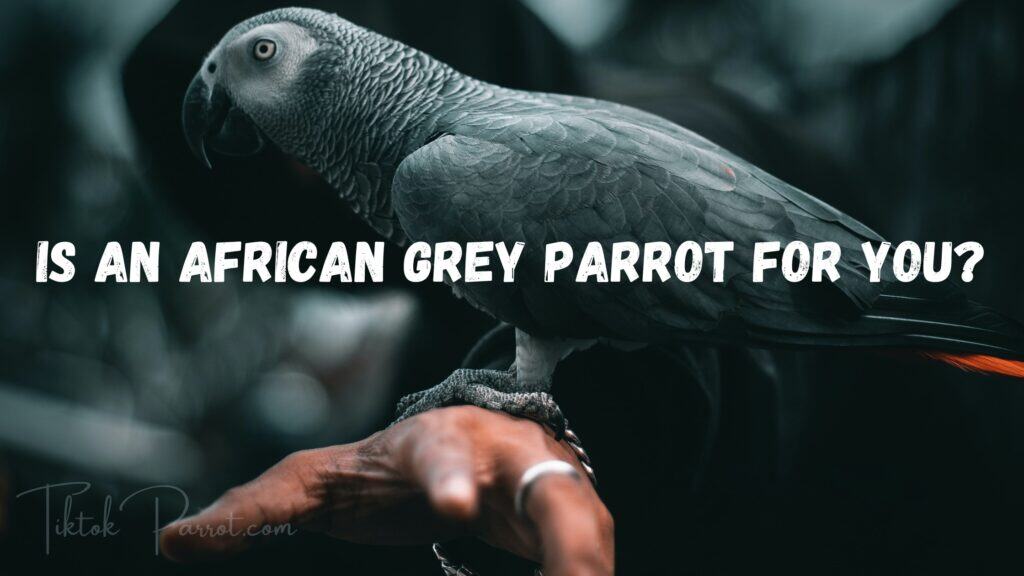African greys are not the only parrots in the world. There are many other types of parrots and they all have different characteristics.
However, greys are one of the most popular pet birds in the world. They are a species of parrot native to the rainforests of West and Central Africa. They are known for their high intelligence and ability to mimic human speech, which has made them popular as pets.
African grey parrots are known for their intelligence, exceptional speaking abilities, and strong social bonds. They are also known for their long lifespan, with some individuals living up to 80 years in captivity. African grey parrots are native to the rainforests of West and Central Africa, where they feed on a variety of seeds, nuts, and fruits.
In terms of personality, African grey parrots are known for their intelligence and problem-solving abilities, as well as their ability to mimic human speech. They are also known for their strong social bonds and the need for social interaction.
In contrast, other parrot species may have different physical characteristics and may come from different parts of the world. For example, macaws are larger than African grey parrots and have a more vibrant coloration, with red, yellow, and blue feathers.
Budgerigars (commonly known as parakeets or budgies) are smaller than African grey parrots and have a green and yellow coloration. Some parrot species, such as cockatoos, are known for their striking white or pink feathering and distinctive crests.
For example, macaws are larger than African grey parrots and have a more vibrant coloration, with red, yellow, and blue feathers. Budgerigars (commonly known as parakeets or budgies) are smaller than African grey parrots and have a green and yellow coloration.
In terms of care, African grey parrots have specific needs that must be met to keep them healthy and happy. They require a varied diet that includes seeds, nuts, fruits, and vegetables, as well as a source of calcium. They also need a large cage with plenty of room to move and explore, as well as toys and other forms of mental and physical stimulation.
African grey parrots also require regular social interaction and training to keep them mentally and physically healthy.
Other parrot species may have similar care requirements, but the specifics may vary depending on the specific species. It is important to research the specific care needs of any parrot species before deciding to bring one into your home.
Generally, African Greys are more expensive than other types of parrots, but this is because they require more care and attention than other birds like cockatoos or parakeets. They need to be fed fresh fruit every day, have their cage cleaned regularly, and have plenty of time outside their cage for playtime with their owners.
There are many differences between African Greys and other parrots including their size, coloration, lifespan, talking ability, intelligence level, and more which I will discuss below:
Size: African grey parrots are larger than many other parrot species, with a length of up to 14 inches (35 cm) and a wingspan of up to 24 inches (61 cm). They have a distinctive grey coloration with a pale grey head and a darker grey body. African grey parrots have a distinctive red tail, which is more prominent in male birds.
Appearance: African grey parrots have distinctive grey plumage, with a pale grey head, a darker grey body, and red tail feathers.
Intelligence: African grey parrots are considered to be one of the most intelligent parrot species, with the ability to learn, and mimic human speech and other sounds. They are considered one of the most intelligent parrot species and are known for their ability to learn and solve problems.
Lifespan: African grey parrots can live for up to 60-80 years in captivity, making them a long-term commitment as a pet.
Diet: African grey parrots require a varied diet that includes seeds, fruits, vegetables, and pellets. They should also have access to fresh water at all times.
Behavior: African grey parrots are known for their vocalizations and their ability to mimic human speech, but they can also be prone to boredom and may exhibit destructive behavior if not provided with sufficient mental and physical stimulation.
Is An African Grey Parrot For You?
If you’re looking for a pet that is intelligent, interactive, and talkative, the African Grey Parrot might be the perfect fit for your family. They are interesting birds with a lot of personalities and are also known to be very social and affectionate.
To properly care for an African grey, you need to spend at least 1-2 hours a day with it. You should also provide it with good quality food, fresh water, toys, and some daily exercise.
Remember, if you are considering getting an African grey parrot, it is important to carefully consider whether you have the time, resources, and commitment to meet the needs of this demanding but rewarding species. It is also important to research the specific care requirements of African grey parrots and ensure that you are prepared to provide for all of their needs.
African grey parrots may not be a good fit for you if:
You do not have the time or resources to devote to their care: African grey parrots require a significant amount of care and attention, including daily feeding, cleaning, and social interaction. They also need a varied diet that includes seeds, nuts, fruits, and vegetables, as well as a source of calcium. They also need a large cage with plenty of room to move and explore, as well as toys and other forms of mental and physical stimulation.
You are not prepared for a long-term commitment: African grey parrots have a long lifespan, with some individuals living up to 70-80 years in captivity. This means that caring for an African grey parrot is a long-term commitment that requires a significant amount of time and resources.
You are not able to provide a quiet, stable environment: African grey parrots are sensitive to noise and changes in their environment and can become anxious or stressed if they are exposed to too much noise or instability.
You are not prepared to work with a potentially challenging pet: African grey parrots are intelligent and can be prone to boredom and destructive behavior if they are not provided with enough mental and physical stimulation. They may also be difficult to train or teach new behaviors.
You are allergic to birds: African grey parrots, like all birds, produce dander, which can trigger allergies in some people. If you are allergic to birds, an African grey parrot may not be the right pet for you.
It is important to carefully consider whether an African grey parrot is the right pet for you before deciding to bring one into your home.
My closing thoughts
African grey parrots are social animals and form strong bonds with their human caregivers. They require a lot of mental and physical stimulation and can become anxious or destructive if they are not provided with enough social interaction and mental challenges.
If you found this blog helpful, It would be great if you could share it with your family and friends who might find it useful as well.
For more useful content about African Grey parrots, you can subscribe my site with your email to get notification upon publishing a new blog, the subscribe box you can see on the right side of this page. Also if you get an alert on your web browser while browsing my site, allow it and that will also give you an alert whenever I publish a new blog. 🙂
Stay safe and much love !




